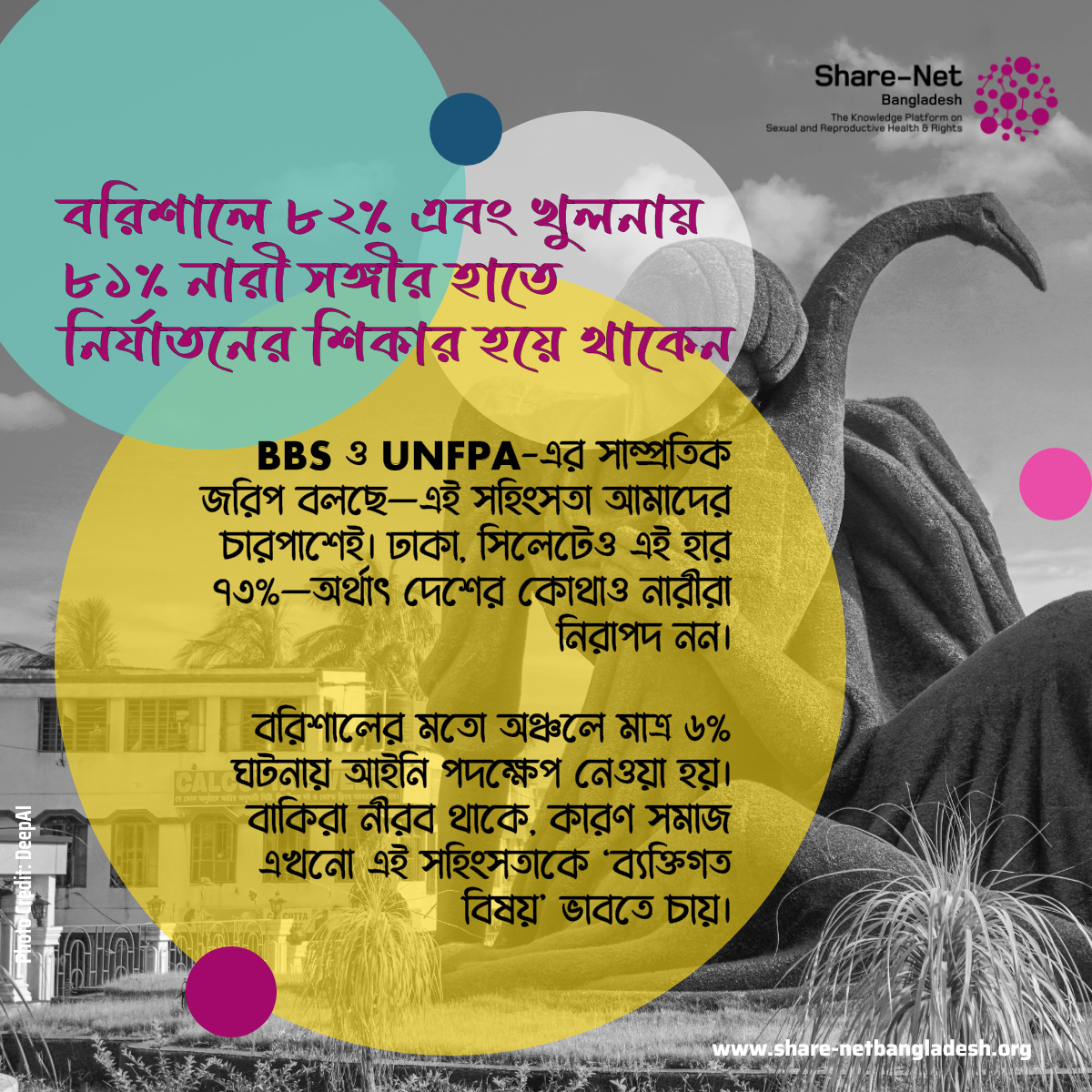8 in 10 Women in Bangladesh Face Intimate Partner Violence: Barishal and Khulna Top National Domestic Violence Rates
In a country where nearly 8 in every 10 women face violence within their own homes, the silence around intimate partner violence (IPV) is deafening. A recent survey by the Bangladesh Bureau of Statistics (BBS) and the United Nations Population Fund (UNFPA) has uncovered the shocking extent of domestic abuse endured by women in Bangladesh—particularly in Barishal (82%) and Khulna (81%), where women reported experiencing at least one form of physical, sexual, psychological, or economic violence from their partner or husband in their lifetime.
Though these divisions top the chart, the rest of the country fares little better: 76% in Chattogram, 75% in Mymensingh and Rajshahi, 74% in Rangpur, and a staggering 73% even in the more urbanised areas of Dhaka and Sylhet. These numbers speak to a systemic failure, not just of policy, but of political will and societal conscience.
“The rate of domestic violence is higher in disaster-prone areas,” notes the report, drawing links between climate vulnerability and women’s exposure to abuse. As men migrate for work, women are left juggling household responsibilities and caregiving, often without any say in decisions. The gender imbalance in roles and voice escalates both stress and violence.
Yet the most jarring statistic isn’t just how many women suffer—it’s how few seek justice. In Barishal, despite the highest reported abuse, legal action is taken in only 6% of cases. This shows the pervasive culture of fear, silence, and systemic neglect that keeps survivors trapped.
While Bangladesh does have legal frameworks like the Domestic Violence (Prevention and Protection) Act 2010, implementation remains weak. “Laws alone cannot save women from sexual violence,” reads one of the source editorials. Without awareness, accessibility, and accountability, laws are nothing but hollow promises.
What’s needed is a shift from passive tolerance to active prevention. Awareness campaigns must target both rural and urban populations, especially in disaster-prone areas. Education systems, local governance, and law enforcement must be trained to recognise IPV as a violation of basic sexual and reproductive rights, not a private affair.
The state must also invest in empowering women with knowledge of their rights. Legal aid, shelters, trauma support, and access to SRHR services must be made widespread and stigma-free. “Such practices and vulnerabilities must end so that women can live in safety and dignity,” the editorial concludes.
This is not just a policy issue—it’s a human rights crisis. The state’s failure to act is not just unacceptable—it is inexcusable.
Source: The Daily Star


